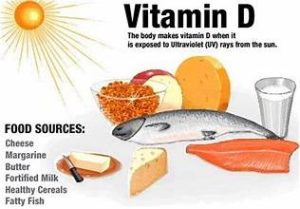Keywords: almonds, health benefits, nutrients, nutrition, healthy eating, snacking
Introduction:
Almonds, these bite-sized nutritional powerhouses, have long been revered for their incredible health benefits and impressive nutrient profile. Packed with essential vitamins, minerals, and healthy fats, almonds offer a wealth of benefits that can positively impact your overall well-being.
Nutritional Composition:
A single ounce of almonds (approximately 28 grams) provides a rich source of nutrients, including:
-
Healthy Fats: Almonds are an excellent source of monounsaturated fats, particularly heart-healthy oleic acid, which can help lower LDL (bad) cholesterol levels and promote cardiovascular health.
-
Fiber: Dietary fiber is crucial for digestive health, blood sugar regulation, and satiety. Almonds are a good source of fiber, providing about 3.5 grams per ounce.
-
Protein: Almonds are a plant-based protein powerhouse, offering around 6 grams of protein per ounce. Protein is essential for building and repairing tissues, maintaining muscle mass, and supporting various bodily functions.
-
Vitamin E: Vitamin E is a potent antioxidant that protects cells from damage caused by free radicals. Almonds are a rich source of vitamin E, providing about 7.3 milligrams per ounce.
-
Magnesium: Magnesium plays a vital role in various bodily functions, including muscle and nerve function, blood sugar control, and blood pressure regulation. Almonds are a good source of magnesium, providing about 76.7 milligrams per ounce.
Health Benefits:
The impressive nutrient profile of almonds translates into a range of remarkable health benefits:
-
Heart Health: Almonds can help lower LDL cholesterol levels, reduce blood pressure, and decrease inflammation, all of which contribute to a healthier heart.
-
Blood Sugar Control: Almonds’ high fiber content helps regulate blood sugar levels, making them a suitable snack for people with diabetes or prediabetes.
-
Weight Management: Almonds’ high protein and fiber content can promote satiety, helping you feel fuller for longer and reducing overall calorie intake.
-
Cognitive Health: Vitamin E, an abundant antioxidant in almonds, may help protect brain cells from damage and promote cognitive function.
-
Bone Health: Almonds contain several nutrients essential for bone health, including calcium, magnesium, and manganese.
Incorporating Almonds into Your Diet:
Adding almonds to your diet is simple and versatile. Enjoy them as a healthy snack on their own, add them to trail mix or granola, incorporate them into baked goods, or use them as a topping for yogurt or oatmeal.
Conclusion:
Almonds are more than just a tasty snack; they are nutritional powerhouses that offer a wealth of health benefits. With their impressive nutrient profile and array of positive effects on overall health, almonds deserve a prominent place in your diet. Embrace the goodness of almonds and experience the many ways they can enhance your well-being.



